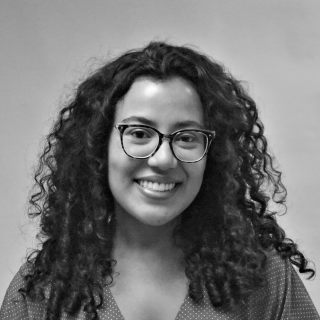
Navigating the transition to college
Madeline Brikner, who has been working with college access and success for nearly a decade, explained to AL DÍA the challenges students face in the process.
In 2014, Madeline Birkner started at the Philadelphia Education Fund (PEF) as a College Access Program Coordinator at Olney Charter High School — executing a Federal TRIO Programs grant, designed for low income and first generation college students — where she would advise students for college and career.
After seven years of successfully connecting students to higher education, she recently became PEF’s Senior Manager for Persistence and College Partnerships, a position focused on helping students thrive in college.
As Birkner has been working with students for quite a period of time, she has gained insights to the challenges of transitioning to and succeeding in college from students. Considering that she worked with students who attended mostly under-resourced schools, Brikner points out academic preparation and financial insecurity as the major barriers in preventing students from having a smooth transition.
In many high schools in the Philadelphia School District, students aren’t able to take rigorous classes, making them less prepared for the expectations in college — which consists of a different learning experience, involving a lot more self teaching and self management. Birkner added the lack of infrastructure to the problem, as students most of the time don’t have access to lab sciences, for example, having to learn the basics in college.
The senior early release policy is another challenge in being college and career ready. Many students struggle with basic literacy and could use some extra hours of reading and writing whether they go to college or not, Birkner said.
“How can we expect our seniors to make a clean transition to any sort of postsecondary program if we communicate with them that it is not very important to come to school for most of the hours of the day,” she added.
Also acting as a financial counselor, Birkner says her job is to be honest with students and their families about their finances and how to be sustainable with it in the long run. She advises on smart and appropriate borrowing, but the final decision isn’t up to her.
Her working process includes explaining vocabulary — what are grants, loans, work study and scholarships, as well as its differences and similarities — and telling students what they are entitled to from the federal and state governments — and how to obtain those.
Birkner also likes to comfort students by saying that feeling anxious and worried is normal, and everyone is experiencing it together.
RELATED CONTENT
Latino students
Especially when working with Latinos in Philadelphia, Birkner noticed that other factors influence their educational experiences. Due to a huge sense of family and home among the community, these students often opt to stay in the city for college — as they perceive home as their safe place.
Birkner highlights that the positive aspects of it are that students can save money with rent and family can be a motivator. However, she brings attention to the negative side, which can be that they don’t have a clear boundary of their school self and their home self — and families might still have the same expectations as they had for them in high school.
Besides the normal worries of making friends or choosing the right major, and the financial pressure; most immigrant students do all the college application process by themselves. Especially considering the sacrifices their parents have made for them, these students want to make their families proud, Birkner added.
Improvements at the Philly School District
Understanding structural issues within the school district take time and money to be addressed, Birkner emphasizes possible and immediate solutions would be smaller caseloads for counselors and academic success incentives.
“That’s why we [PEF] are in the schools we are in,” she said. “We know counselors are asked to do too much. We take some of that college and career prep off their shoulders.”
Birkner asks for more commitment in helping students meet the graduation requirements through Keystone Exams. Schools are skirting this route because historically the district hasn’t done great, she added.
“Let’s keep students in school, let’s help them develop a little bit more literacy, let's have more life skill classes [how health insurance works, how to read a lease and more].”











LEAVE A COMMENT:
Join the discussion! Leave a comment.